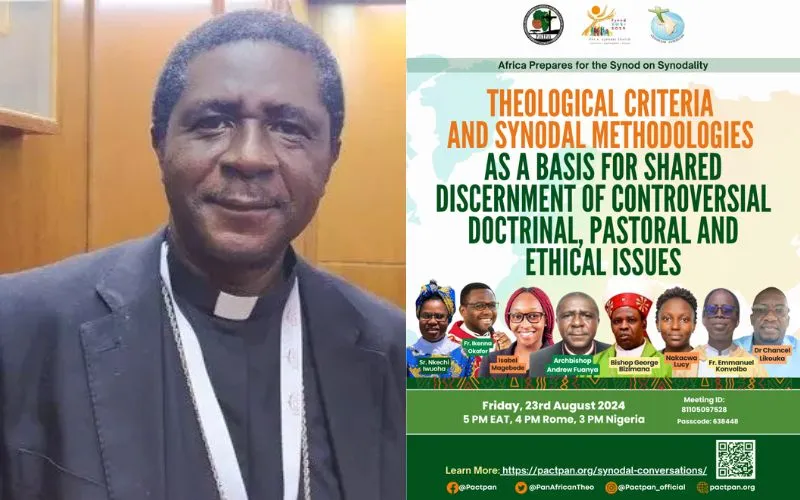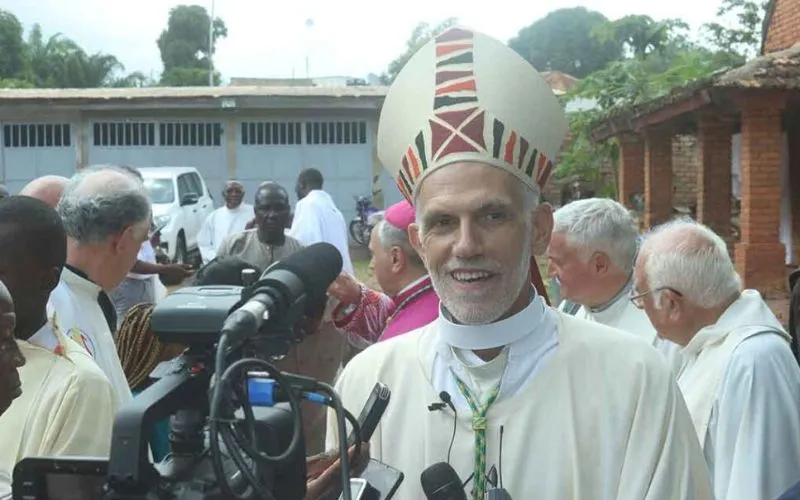Nairobi, 27 August, 2024 / 9:00 pm (ACI Africa).
The Synod on Synodality, which started off as a pastoral issue, bringing on board every baptized member of the Church, has now become a “theoretical” topic for intellectuals, the Archbishop of Cameroon’s Catholic Archdiocese of Bamenda has observed.
In his presentation at the August 23 session of the ongoing weekly synodal palavers, Archbishop Andrew Nkea Fuanya explored the various ways in which the ongoing multi-year Synod on Synodality, which Pope Francis extended to 2024, with the first phase, 4-29 October 2023, having concluded with a 42-page summary report, has evolved.
“Synodality has undergone an evolution from the time it was conceived through the time it was put out as a subject for the next synod up to where we are now,” Archbishop Nkea said at the event that the Pan-African Catholic Theology and Pastoral Network (PACTPAN) organized in collaboration with the Conference of Major Superiors of Africa and Madagascar (COMSAM).
He noted, “Synodality, which stood out as a pastoral topic, is becoming a more academic and intellectual topic.”
According to the Cameroonian Catholic Archbishop, synodality started as a means of gathering the people of God and getting everyone to participate in the life of the Church both in governance and in the preaching of the Gospel.








